The Scientific Advisory Board (SAB) at Bay Area Lyme Foundation provides strategic guidance and oversight for our research and scientific programs. These leaders represent some of the most important researchers and clinical innovators in the field of Lyme disease who have all made important contributions to the understanding, diagnosis, and treatment of the disease.
Charles Chiu, MD, PhD, University of California, San Francisco
Monica Embers, PhD, Tulane University Health Sciences
Donna Felsenstein, MD, Massachusetts General Hospital
Christine Green, MD, Board Member, LymeDisease.org & ILADS
Linden Hu, MD, Tufts Medical School
Steven Phillips, MD, private practice in Danbury Connecticut
William Robinson, MD, PhD, Stanford University School of Medicine
Sunjya K. Schweig, MD, California Center for Functional Medicine
Emeritus Scientific Advisory Board
With sincere gratitude for the compassion, guidance, and countless contributions to the field of Lyme disease we formally recognize these individuals as an integral part of the Bay Area Lyme leadership team. In honor of their professional service, scholarly and research achievements we bestow the honor of Emeritus Scientific Advisory Board Member to the following members:
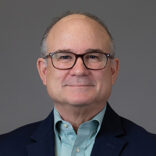 John Aucott, MD, Johns Hopkins
John Aucott, MD, Johns Hopkins
Dr. Aucott is an Associate Professor of Medicine in the Division of Rheumatology at Johns Hopkins University Medical School and the Director of the Johns Hopkins Lyme Disease Research Center
Dr. Aucott is principal investigator for the SLICE studies of acute Lyme disease and chronic post-treatment Lyme disease. His research interests center on the pathophysiology, diagnosis, and treatment of persistent illness after initial antibiotic treatment of Lyme disease and has resulted in over 25 peer-reviewed publications. Dr. Aucott is an internationally recognized authority on Lyme disease and has served on groups sponsored by the Institute of Medicine, the Canadian Institutes of Health Research, and the U.S. Department of Health and Human Services. He is the immediate past chair of the HHS Tick-Borne Disease Working Group.
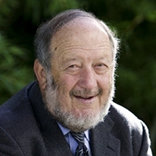 Irving Weissman, MD
Irving Weissman, MD
Professor, Stanford University (Developmental Biology & Cancer Research); Director, Stanford Institute of Stem Cell Biology and Regenerative Medicine; Director, Ludwig Center for Cancer Stem Cell Research at Stanford University
Dr. Weissman is a Professor of Pathology and Developmental Biology at Stanford and the Director of the Stanford Institute of Stem Cell Biology and Regenerative Medicine and the Ludwig Center for Cancer Stem Cell Research. His research encompasses the phylogeny and developmental biology of the cells that make up the blood-forming and immune systems and he was the first to discover and isolate the mammalian and hematopoietic (or blood-forming) stem cells. He is also a leading expert in the field of cancer stem cell biology, pioneering the the study of genes and proteins involved in cell adhesion events (both as normal function and as events involved in malignant leukemic metastases). This work highlights the role of phagocytic cells such as macrophages with important implications for the development of new therapies, including a cancer treatment current in development that enlists the immune system to help attack persistent residual malignancies that linger and hide after traditional treatments.
Scientific Advisory Board
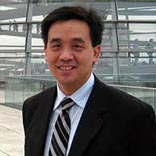 Charles Chiu, MD, PhD
Charles Chiu, MD, PhD
Professor of Laboratory Medicine and Medicine, Division of Infectious Diseases at University of California, San Francisco, Director of the UCSF-Abbott Viral Diagnostics and Discovery Center (VDDC), and Associate Director of the UCSF Clinical Microbiology Laboratory
Dr. Chiu currently heads a translational research laboratory focused on clinical next-generation sequencing assay development for diagnosis of infectious diseases and investigation of emerging pathogens, including Borrelia burgdorferi (Lyme disease), Zika virus, and enterovirus D-68 in association with acute flaccid myelitis in children. Most recently, he His work also encompasses clinical and public health applications of nanopore sequencing and machine learning-aided RNA-Seq approaches to detect and identify diagnostic profiles of a patient’s response to infection. Dr. Chiu supported by funding from the National Institutes of Health (NIH), Abbott Laboratories, Department of Defense, NASA/Translational Research Institute, philanthropic grants (Charles and Helen Schwab and Steven and Alexandra Cohen Foundations), and the California Initiative to Advance Precision Medicine. He has authored more than 80 peer-reviewed publications, holds over 15 patents and patent applications, and serves on the scientific advisory boards for the Bay Area Lyme Foundation, Global Lyme Alliance, Therabio, Inc., and Mammoth Biosciences, Inc.
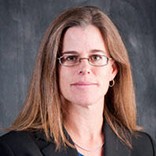 Monica E. Embers, PhD
Monica E. Embers, PhD
Director of Vector-borne Disease Research, Division of Immunology, Tulane National Primate Research Center, Tulane University Health Sciences
Dr. Embers’ research program regarding Borrelia burgdorferi and Lyme disease is designed around two major foci: (1) novel treatments for Lyme disease; and (2) immunodiagnosis for B. burgdorferi infection and cure. The first research goal is to develop and evaluate novel treatments or antibiotic regimens for eradication of acute and persistent B. burgdorferi infection. The second goal is to develop a quantitative multi-antigen test that expands detection limits and helps to distinguish persistent infection from clinical cure. By studying the natural course of infection in animal models, her group hopes to facilitate a better understanding of the clinical quandaries of human Lyme disease, including effective diagnosis and treatment.
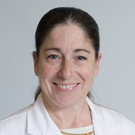 Donna Felsenstein, MD
Donna Felsenstein, MD
Medical Director, GID Unit, Massachusetts General Hospital; Assistant Professor of Medicine Harvard Medical School
Dr. Donna Felsenstein is a member of the Infectious Disease Unit at the Massachusetts General Hospital. She earned her Medical Degree from Harvard Medical School and completed her Residency and Fellowship in infectious Disease at Massachusetts General Hospital. Her areas of clinical focus include Lyme disease and chronic fatigue syndrome. Dr. Felsenstein has been practicing medicine for over 30 years and is a recognized leader in the treatment of Lyme.
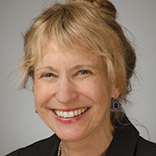 Christine Green, MD
Christine Green, MD
Director of Education for International Lyme and Associated Diseases Society; Board Member, International Lyme and Associated Disease Society (ILADS) and LymeDisease.org (formerly CALDA)
Dr. Green is a recognized leader in Lyme disease diagnosis and treatment who practices complementary, integrative, and orthomolecular medicine from her private family practice, Green Oaks Medical, in northern California. She serves on the board of ILADS (International Lyme and Associated Diseases Society) and lymedisease.org and has helped to bring greater awareness to the medical community through patient research and advocacy. She currently serves as the Director of Education for ILADS. Dr. Green has a true passion for her profession and patients, demonstrated by her commitment to constant collaboration and ongoing research within the patient and medical community and she possesses a unique ability to problem solve patient issues, seeking out unconventional uses of therapy, based on Western Medicine research and clinical studies. She is currently practicing Integrative Medicine at The Medical Offices of Dr Christine Green.
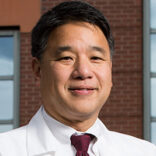
Linden Hu, MD
Paul and Elaine Chervinsky Professor of Immunology at Tufts Medical School
Dr. Hu received his A.B. and M.D. from Brown University. He completed training in Infectious Diseases at Tufts Medical Center. His laboratory works on multiple aspects of Lyme disease including vaccine development, new diagnostics and treatments, and understanding interactions between Borrelia burgdorferi and its tick and animal hosts. Most recently, his lab has been researching how the pathogen evades the host immune response and how human genetic mutations may alter the ability of the bacterial host to control inflammatory responses. The lab is also partnering with other laboratories on strategies to eradicate tick-borne pathogens from their wild reservoirs.
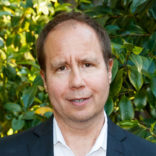
Steven Phillips, MD
Zoonotic Disease Expert Internist, Danbury Connecticut; Past President of ILADS
Steven E. Phillips, MD is a Yale-educated, world-renowned expert on zoonotic infections who has treated over 20,000 patients from over 20 countries. He is well-published in the peer-reviewed medical literature, acclaimed for his work in linking chronic diseases to occult infections, and successfully treating some of medicine’s most complex cases. He specializes in the management of stealth pathogens, which include Lyme disease, bartonellosis, babesiosis and other vector-borne diseases. With over two decades of experience in successfully treating patients with zoonotic infection, he discovered that inflammatory and rheumatic conditions were associated with bartonellosis. He is currently involved in drug development to bring public a durable and effective treatment for this infection and change the face of rheumatology forever.
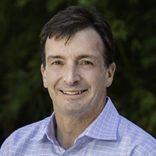 William Robinson, MD, PhD
William Robinson, MD, PhD
Professor of Medicine, Stanford University Dept. of Medicine (Immunology & Rheumatology)
Dr. Robinson is a board certified rheumatologist at Stanford’s School of Medicine and has clinical practices affiliated with the VA Hospital in Palo Alto. He is also the Chair of the Stanford Lyme Working Group (SLWG). His laboratory studies the molecular mechanisms of autoimmune and rheumatic diseases, and develops therapies to treat rheumatoid arthritis, multiple sclerosis, and osteoarthritis. The lab is a part of the Division of Immunology and Rheumatology in the Department of Medicine, the Program in Immunology, and the Center for Clinical Immunology at Stanford (CCIS) at Stanford University School of Medicine. It is also part of the Institute for Immunity Transplantation and Infection (ITI) at Stanford.
 Sunjya K. Schweig, MD
Sunjya K. Schweig, MD
CEO and Co-Director of the California Center for Functional Medicine
Sunjya K. Schweig, MD is an expert in complex chronic illnesses, which require rigorous investigation and management. Dr. Schweig utilizes cutting edge diagnostic and treatment modalities that respect the complex interconnectedness of the body and the environment. He has been studying, teaching, and practicing integrative and functional medicine for over 20 years. Dr. Schweig recently partnered with Chris Kresser, Lac., to form the California Center for Functional Medicine (CCFM).